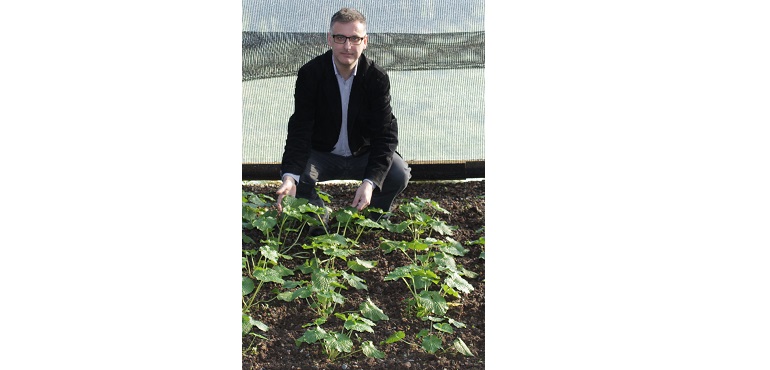
Northern Irish grown wasabi launched in London
Wasabi from a grower in Northern Ireland is being launched at the London Produce Show.
The Japanese plant is being developed by Wasabi Crop, based near Portadown in county Armagh. Dr Sean Kitson, a scientist behind the first wasabi farm in Ireland, is now producing three varieties - Mazuma, Duruma and Green Thumb - in climate-controlled conditions under glass in Northern Ireland.
Through a partnership with vegetable growers and packers Gilfresh, Wasabi Crop expects to reach commercial levels by next year and hopes to sell the plant back to Japan where it is in short supply. He's already had interest from UK chefs keen to incorporate it in their dishes.
The wasabi leaves and stems are already sold through his online shop, but it's the rhizome that has the best flavour and takes around two years to grow.
"We need to educate people that much of the time, they will be eating fake wasabi as many of the restaurants and sushi bars use the stuff in the tubes because the real thing can be very difficult to get hold of," Dr Kitson says.
"If it is not grated in front of you, then it's not the real deal. I'd like to offer this dimension to chefs and consumers in the UK and further afield.
He started wasabi production in County Armagh last year using polytunnels and hydroponic techniques. He is now increasing the glasshouse cultivation in a site with Gilfresh, a leading Northern Irish grower and supplier of fresh vegetables.
"My idea is to supply rhizomes, leaves and stems all throughout the year so we will stagger the growing. I believe there are only two growers in Europe, ourselves and another company in England. We've been lucky to have a partner like Gilfresh which has all the infrastructure, packing and distribution channels and so on and we are fortunate to have a great relationship with them."
Dr Kitson continues: "It's a medicinal plant as well with lots of health attributes associated with it. The reason why they sit well with sushi, raw fish and meat is because it has antibacterial properties.
"I think there is so much more potential for this crop. We're trying to be innovative with our growing and keeping sustainability in mind."